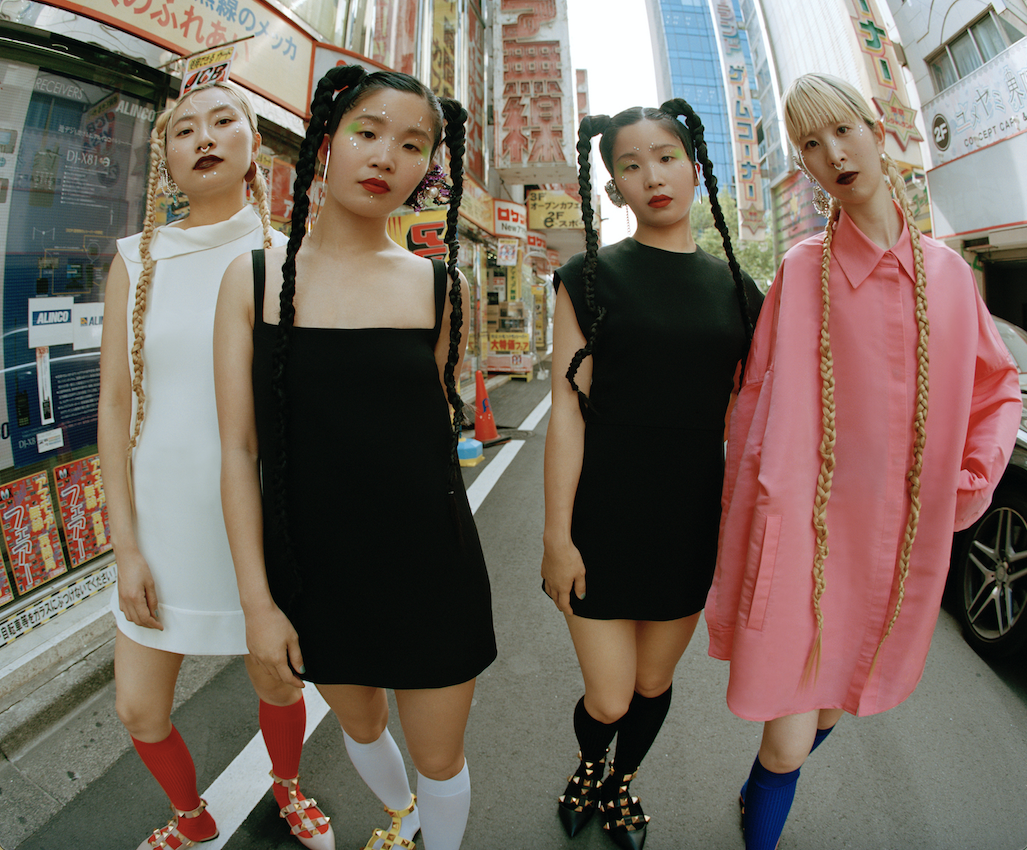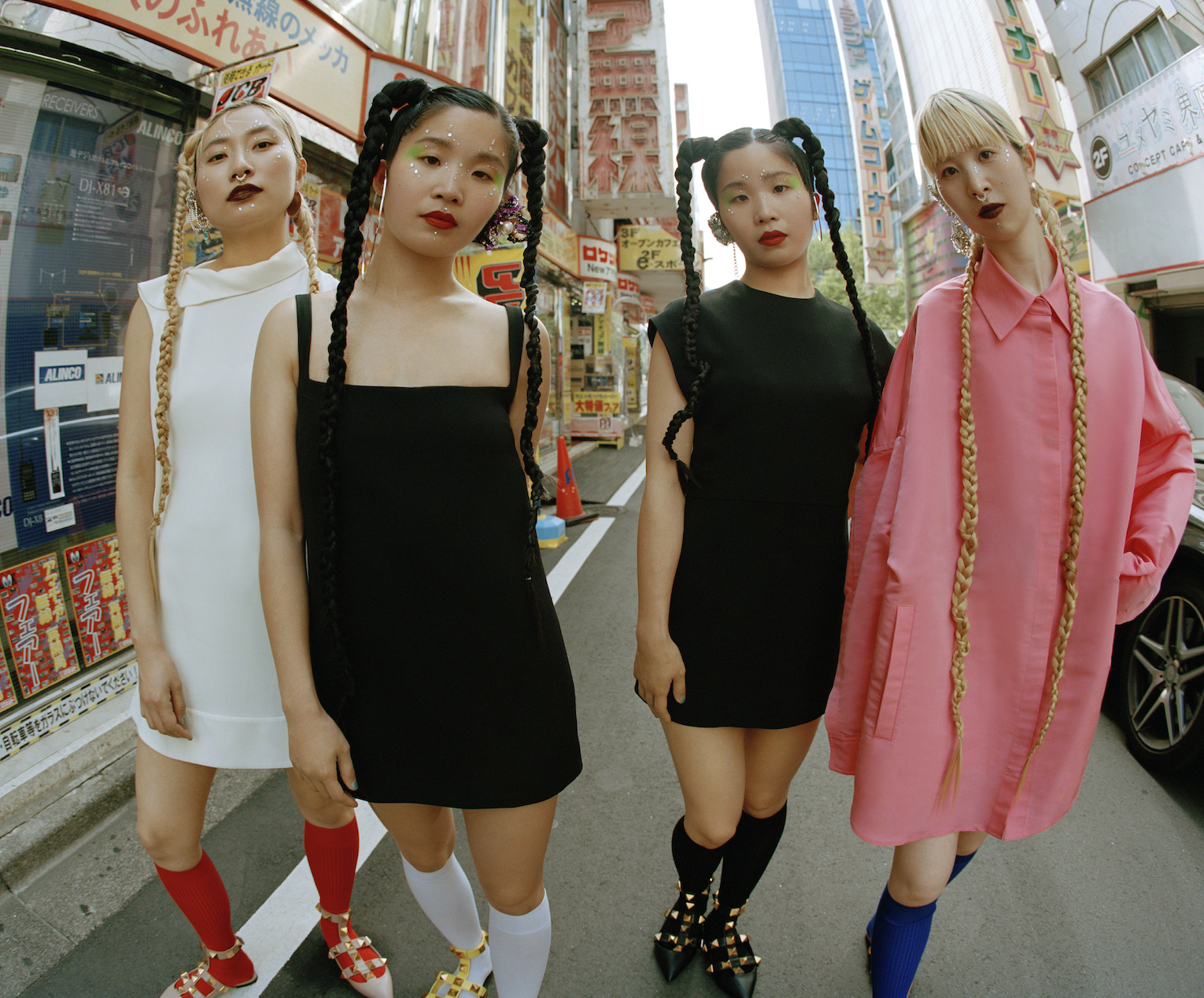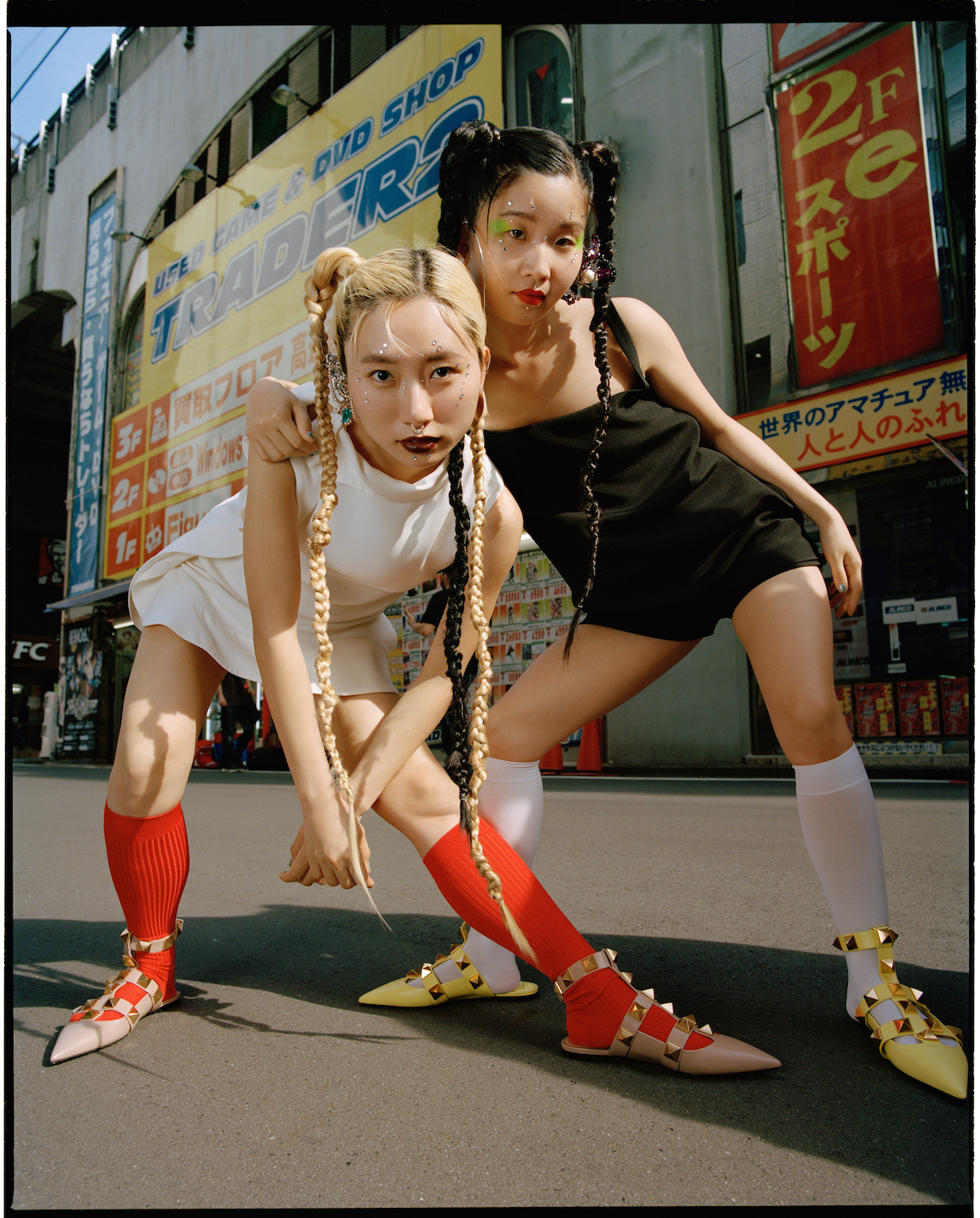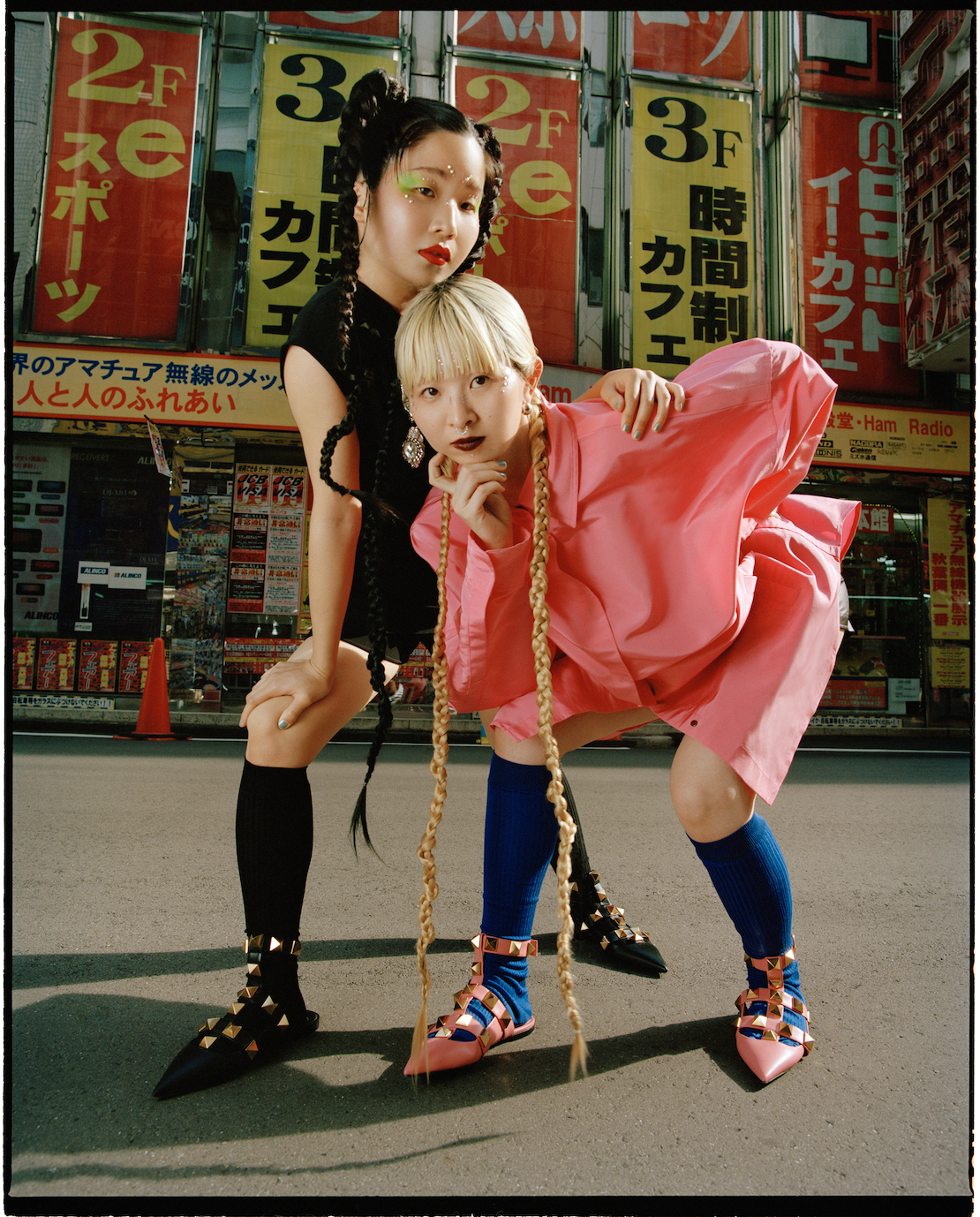Chai is Redefining What it Means to Be Kawaii
Japanese pop-punk quartet Chai are tearing up the rules.

This article Get a copy of V131 “Golden Age” here.
There is a tradition in Japanese culture where after people bathe in the hot springs, they’ll play a round of ping pong…while drinking a refreshing glass of fruit-flavored milk. This idiosyncratic, centuries-old practice inspired CHAI’s latest single, “Ping Pong!” Featuring the four bandmates as 8-bit animations, the music video visual draws from both old and new Japan: “It’s a weird play on the surrealness of video games versus the actual traditional game of ping pong and what that means to Japanese culture,” says Yuna, the band’s drummer.

Yuna makes up one of the four bandmates—completing the girl group are identical sisters, Mana and Kana, and their best friend Yuuki, whom they met in college. With their genre-less music that embraces femininity in all its forms, CHAI is the latest Japanese band to make waves in the music industry, from performing at Coachella to signing onto Sub Pop records. “When people listen to our music, we hope it will help them be confident in themselves,” said Mana, the band’s lead vocalist. Though they’ve only been a band for six years, CHAI has already gotten international recognition, with their 2016 song “Gyaran-boo” reaching number 36 on Spotify’s UK Top 50 Chart. With notes of punk, pop, rock and everything in-between, the band’s music pivots away from the one-size-fits-all J-pop aesthetic, a formula they never felt comfortable embodying in the first place, the members say.

At the core of CHAI’s ethos is the concept of neo-kawaii, which stems off of the Japanese term kawaii, which directly translates to “cute” in English. In their latest album, WINK, the girl group dismantles and subverts the notions of cuteness that are deeply entrenched in Japanese social norms: norms that the band say facilitate unattainable ideals in young Japanese women. “In Japan, the word kawaii is defined with specific features—pointier nose, longer hair, fair skin tone, and larger eyes—features that are associated with Western features,” Mana elaborates. After being frustrated by the limitations of this definition and realizing not everyone fit into it, the girls coined a new phrase: neo-kawaii to “explain this new cute, for everyone that doesn’t fit into these standards,” said Mana. To the members of CHAI, reassuring women that each one of them is “good the way you are,” (a concept they reiterate in punchy banger, “I’m Me”) is a deeply personal goal, as all four say that they have struggled with their own identity.

Brimming with shameless defiance and driven by a heavy drum beat, the album encourages women to find space in neo-kawaii and fully detach themselves from mainstream definitions of beauty. Ambition, excitement and, most of all, sincerity manifest themselves in everything the group does, from their infectious songs to thrilling performances to their graciousness in person. “I hope that we can continue to give love to people through our visuals, through our music, through our fashion,” says Yuuki. Mana then chimed in, “I’m nervous and excited for our future, but I think our future is bright.” And if their latest release is any indication, it definitely is.
Get a copy of V131 “Golden Age” here.
Discover More
